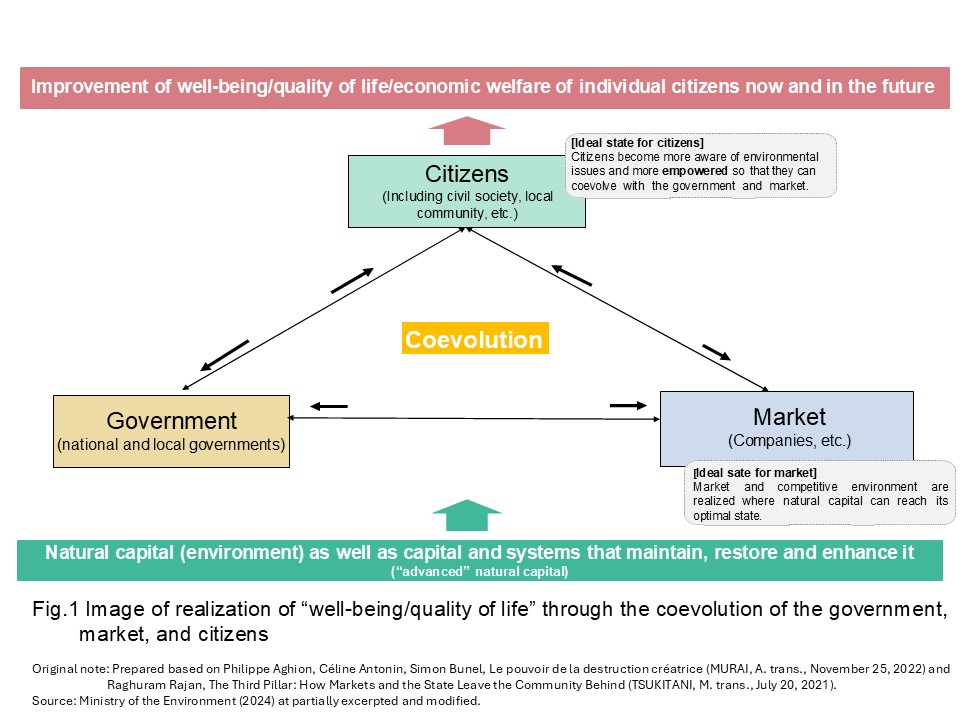Japan's Sixth Basic Environmental Plan Reiterates Importance of Civil Society
6/1 2025
Author: Kazuhiro Okuma
In this article, I will introduce a concept presented in Japan's Sixth Basic Environmental Plan. The plan was decided upon a year ago. However, in light of the current global political climate, some of the concepts presented in the plan have become increasingly important.
Japan's Basic Environmental Plans are decided approximately every five years based on the Basic Environment Law. The Plans outline specific policy programs as well as major policy directions and principles. The latter is particularly impressive in the current plan. By following global trends and capturing new concepts being developed in economics and political science, it outlines the concepts that policy should aim to achieve, including those that would be considered ambitious even by researchers.
Among the concepts outlined in the plan, we would like to introduce one in this article. It is the "co-evolution of government, market and citizen. Figure 1 illustrates this concept. Along with the government and the market, the axis of citizen has been established, and through their interaction, they will cause a “co-evolution” in which they will improve each other. The goal of this process is to improve the well-being or quality of life of current and future citizens.

The plan also mentions the concept of civil society and the importance of local communities, as shown in Figure 1. It is noteworthy that the plan mentions the importance of empowering citizens to achieve “co-evolution” by influencing government policies and the market economy.
Today, with the Trump administration coming to power in the United States and the reported progress of far-right parties in Europe, there are concerns about the spread of populism around the world. Populism is more likely to emerge when market economies fail to deliver prosperity to the masses. At such times, it may be difficult to create effective alternatives from a two-axis view of the market or government. The key is for citizens to express their own will and take action, rather than following populist leaders or being swallowed up by the market.
The Basic Environmental Plan is a plan on environmental issues and policies, but nevertheless, it raises a new idea related to the socio-economy as a whole. This may be because environmental issues are one of the places where the issues of society as a whole show up in a radical way. In the current global political climate, there are signs of stagnation in environmental policy. Can we make progress towards a better society by strengthening civil society and co-evolution with governments and markets? The future not only of environmental issues but of the entire socio-economy may depend on it.
References
Bowles, S. and Carlin, W. (2020) "Shrinking Capitalism." AEA Papers and Proceedings 110: 372–77. DOI: 10.1257/pandp.20201001
Ministry of the Environment (2024) “Outline of the Sixth Basic Environment Plan.
“ www.env.go.jp/council/content/i_01/000281035.pdf. Accessed May 24 2025.
